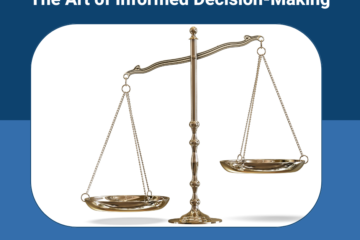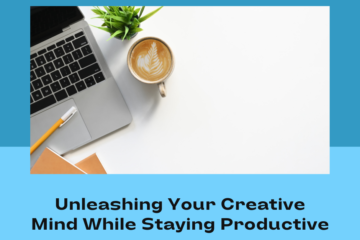
Introduction:
When Was the Last Time You Explored Your Career Direction? If you haven’t thought about it much since high school, you may have settled into a job that doesn’t meet your professional goals or give you a sense of meaning. Each of us has special skills that can help make the world a better place if we use them and help them grow. By working on and improving these skills, you can make the biggest difference in the world and be happy in your personal and business life. In this article, we’ll talk about the process of figuring out what you want to do with your job and give you tips on how to answer three important questions: “Who am I?” “What do I want to do?” and “How do I get hired?”
Discovering Who You Really Are
The first thing to think about is, “Who am I?” You can answer this question in two ways: by looking at your skills or by using psychological tests to find out what you like. When you think about your past, you can learn a lot about your skills and passions. Think about the questions below:
When did you feel most dedicated, eager, and excited?
When did you show the most creative side of yourself?
When did you feel the most sure of yourself and your choices?
What do you think is your best achievement?
When have other people thought you did the best?
When have you had the most fun at work?
What skills did you use and depend on in these situations?
What values would you stand strong for?
What things in the world bother or confuse you that you could do something about?
If you could choose, which parts of your job do you really enjoy?
What do you like to do outside of work?
What would you do if you didn’t have to worry about money?
Think about your answers to these questions and use them to figure out the top three skills you always use to be successful. Put these skills in order of how important they are. Also, think about using Myers-Briggs, DISC® (Dominance, Influence, Steadiness, and Conscientiousness), and strength finder assessments to learn more about your chosen working style and what motivates you. These tests can help you figure out what you need to do to find satisfaction in your chosen field.
To sum up what you’ve learned about yourself, put it all into a simple written sentence that describes who you are. This exercise is very important for getting to know yourself and figuring out your mission. Use this sentence to answer the questions that follow:
What are your skills and good points?
Which skills help you get the most done?
What are the things you enjoy doing the most?
What do the results of the aptitude tests point you toward?
Don’t forget to think about not just the easy jobs you did well in the past, but also the hard ones where you made a difference and stood out. When you know who you really are, you can start to figure out what you want to do with your life.
Finding Out What You Want to Do
Now that you know more about yourself, you should think about what you want to do. If you want your life to be well-balanced and full, your job should reflect who you really are. If you choose a job that goes against your values, beliefs, and outlook, you will always be struggling, stressed out, and unhappy. Because of this, it is important to think of job ideas that fit your skills.
Start by going over your “Who I Am” statement and thinking about jobs that would be good for someone with your skills and hobbies. You can be more objective about this thinking process if you remove yourself from the statement. Think about how you can use your current experience and network to find opportunities in your current area. But if you are very unhappy with your current company, business, or job, you might want to think about making a big change.
Add to your first ideas with online career tests and other tools to find out about more options. These tests can help you find careers that fit your personality type that are new or less well-known. Choose your top five or six options by taking into account things like business trends, pay levels, qualifications needed, and the availability of jobs.
Do a lot of research on each career option on your short list. Look at industry and career magazines, professional and trade shows, job fairs, business websites, and volunteer or part-time work to get first-hand experience. Look at the business trends, figure out the skills and personality traits that make people successful in each job, and compare them to your own. By doing thorough study, you can figure out which careers fit your skills and interests and will give you long-term satisfaction.
Answering “How Do I Get Hired?”
In this last step, you start to think about “What am I going to do to get hired?” Now that you’ve narrowed down your choices, it’s time to figure out how to get the job you want. Here are some important things to think about:
Update your resume:
Change your resume to show off the skills and experiences that are most important to the jobs you want. Use keywords that are special to your field and highlight your accomplishments.
Add people to your network:
You can make connections in the fields you’re interested in by going to events, joining professional groups, and reaching out to people who are already working in your chosen field. Networking can lead to great chances and new ideas.
Improve your skills:
Figure out where you’re missing information or certifications and take steps to get them. Think about taking related classes, going to workshops, or finding a mentor.
Get real-world experience.
Look for jobs, apprenticeships, or volunteer work that will give you hands-on experience in the field you want to work in. Employers can see how committed and skilled you are by how much experience you have.
Get ready for interviews by:
Find out what common interview questions are in the area you want to work in and practice your answers. Show how your skills and experiences are a good fit for the job. Also, make a list of questions to ask the employer to show that you are interested and know something about the job.
Make sure your online profiles, such as LinkedIn, show what kind of worker you are. You can become a thought leader in your field by sharing important articles and insights and talking to people who work in that field.
Keep in mind that getting a job is an ongoing process that requires you to be persistent and flexible. Keep improving your plan, ask for feedback, and be open to new possibilities as they come up.
Conclusion:
Figuring out what you want to do with your work is a personal journey that involves understanding your skills, matching them to your interests, and putting yourself in a position to get the job that meets your goals. By figuring out who you really are, what you want to do, and how to get hired, you can get started on a job path that will make you happy. Work is an ongoing process of change, growth, development, and finding new ways to do things. Because of this, you should always evaluate your direction and make changes as needed. Believe in your skills, be open to new opportunities, and enjoy the journey of self-discovery and career growth.
FAQs
1. How long does it take to figure out what you want to do with your life?
How long it takes to figure out what you want to do with your job can vary a lot from person to person. Some people may know right away what their skills and hobbies are, while others may need more time to figure it out. It’s important to go into the process with patience and give yourself time to think, do study, and make decisions based on what you’ve learned.
2. Can psychometric tests correctly tell me what I should do with my life?
Psychological tests can tell you a lot about your tastes and how you work. But it’s important to remember that these tests are just guides and can’t tell you everything about who you are and what you’ve been through. Use them as a guide along with self-reflection and thorough study to make smart decisions about your career path.
3. Is it possible to change careers as you get older?
Absolutely! Career routes are not set in stone, and many people change them at different times in their lives. It’s never too late to find a job that makes you happy and makes a difference. You can successfully move into a new area that fits your skills and goals if you use the skills, experiences, and networks you already have.



0 Comments